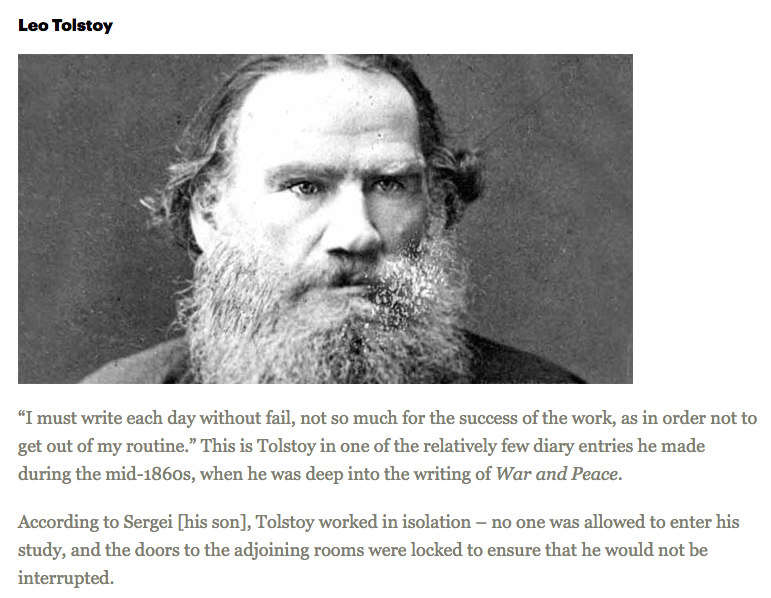Finish Your Manuscript! 8 Productivity Hacks for Writers

You’ve been writing your book for… how long now? When you’ve started writing a book, sometimes the hardest part is actually finishing it. Life gets in the way, writer’s block rears its ugly head, and sometimes you just don’t feel motivated to write.
All of that is unavoidable in the life of a writer, but that doesn’t mean that you have to succumb to it. No matter what’s happening in your life, it’s possible to hack your way into becoming a more efficient writer.
In this post, we’re going to look at the best writing hacks ever for completing your manuscript.
Just Start Writing
Don’t let something like writer’s block stop you from actually writing. Writer’s block doesn’t mean that you don’t have anything to say. In most cases, it means that you’ve allowed that inner critic to paralyze you. Writer’s block is more about perfectionism than inspiration. When you suffer from writer’s block, you’re just afraid of not being perfect and not saying the right thing.
That’s why you’re going to ignore writer’s block, and give yourself permission to suck. You don’t have to be perfect—that’s what editing is for. For now, simply write.
You’ll definitely encounter a lot of bad prose along the way, but write your way through it to eventually arrive at something workable.
Write a Lot
I mean, a lot. The average novel requires between 80,000 to 100,000 words. If you’re still hovering around the 30,000 word mark, you’ve got a lot of ground to cover.
Give yourself a word minimum to hit each day. That total can be anywhere from 1,000 to 10,000 words. At this rate, you can have a rough draft written in under three months (or maybe even a week, if you hustle, and forego sleeping, eating, and sanity).
Now, keep in mind your rough draft will be just that: rough. At the end of this writing blitz, you won’t have given birth to the next great American novel, but you may have conceived it. Okay, I’m going to stop being creepy now, but you get the idea.
Give Yourself a Deadline
Some writers aren’t motivated by word count, and if that’s you, here’s what to do instead: write towards a deadline.
You’ll need to first create an outline. This framework helps you understand what you’re writing towards.
Next, create a deadline for each chapter. For example, give yourself one week to write one chapter. This works best when you commit to a daily writing schedule. Otherwise, you’ll be tempted to binge-write the entire chapter the day of the deadline.
Incentivize your deadline goals. Promise to give yourself a reward for hitting your deadline. This reward doesn’t have to be anything big. It can be as simple as a candy bar, but oh, how tasty that candy bar will be once you’ve finally hit your goal.
Make a Daily Schedule

Attack your book like a part time job. As we mentioned above, you should commit to a daily schedule for completing your book. This means write each day whether you feel like it or not.
Don’t expect that each writing session will be filled with rainbows of inspiration. Your book depends on your discipline. Discipline shows up to work whether the rainbow appears or not.
Plan your day beforehand. You can create a daily schedule the day, week, or month before, depending on how organized you are. Make one that’s realistic and flexible enough to bend if an unforeseen emergency pops up.
Here’s a simple day planner to help you finally complete your manuscript. Subscribe to receive this extra resource.
Plan for Distractions
As long as you have a brain, you will be distracted. What’s for dinner, when is that bill due again, did I turn off the iron? Throughout the day, your mind will randomly ask you questions as if you’re on a gameshow. Ignoring it may work temporarily, but these questions always come back, and often louder.
So, instead of ignoring it, make a plan to deal with them. Keep a notebook next to your writing station and jot down anything you need to act upon during your break time. You can also just record the notes into your smartphone if you’d prefer.
Give In To Some Distractions
Remember that iron? You’ll probably want to check on that one immediately. There are other distractions you should also give in to sooner rather than later.
Don’t lock yourself up in a writer’s dungeon for hours on end. Take frequent breaks.
I highly recommend the Pomodoro Technique. This time management tool helps you to focus on the task at hand for 25 minutes and then gives you a five minute break to do absolutely nothing.*

Image Courtesy of Pomodoro Technique
*Nothing could mean taking a bathroom break, doing a quick exercise to reinvigorate yourself, or completing a quick chore that makes you feel like you’re winning at life.
Skip Around
Have you come to a part in your manuscript that you just can’t make work? Perhaps the characters fall flat, the scene seems off, or the subject matter is dull. It’s perfectly fine to skip that section and circle back around after you’ve written another part of the book.
Sometimes writing ahead can help clarify what needs to be said in another part of your story-- the part that you don’t want to write now.
Get Physical

Image Courtesy of the Paris Review
Writing is a mental sport. You spend most of your time witnessing amazing stories play out inside of your head. But it’s so important to have a balance between the mental and physical.
AJ Jacobs writes while working on a treadmill. It took him approximately 1,200 miles to write his book Drop Dead Healthy.
Kurt Vonnegut swam everyday.
Dan Brown does push ups, sit ups, and stretches every hour.
Haruki Murakami runs 10 kilometers every afternoon and sometimes he swims, too.
According to Murakami, “Physical strength is as necessary as artistic sensitivity.”
It can’t be a coincidence that all of these great writers also value activity. While you may not be up for running six miles a day, you should punctuate your writing with some physical activity.
And not just for five minutes. This is separate from the Pomodoro Technique we discussed earlier. This requires a longer amount of time—no less than 30 minutes.
It may be walking around your neighborhood, doing a high intensity workout, or playing a game of basketball or tennis.
Do something that gets your heart pumping and commit to it daily. Improving your discipline will help you finally complete your manuscript.
[content_upgrade cu_id="1660"]Here's a simple day planner to help you finally complete your manuscript. Subscribe to receive this extra resource.[content_upgrade_button]Click Here[/content_upgrade_button][/content_upgrade]
Here’s a simple day planner to help you finally complete your manuscript. Subscribe to receive this extra resource.
Final Thoughts
Finally finishing that manuscript might feel daunting, But, aren’t you happy to know that there’s something you can do about it? Now, enough reading, let’s get to writing.




